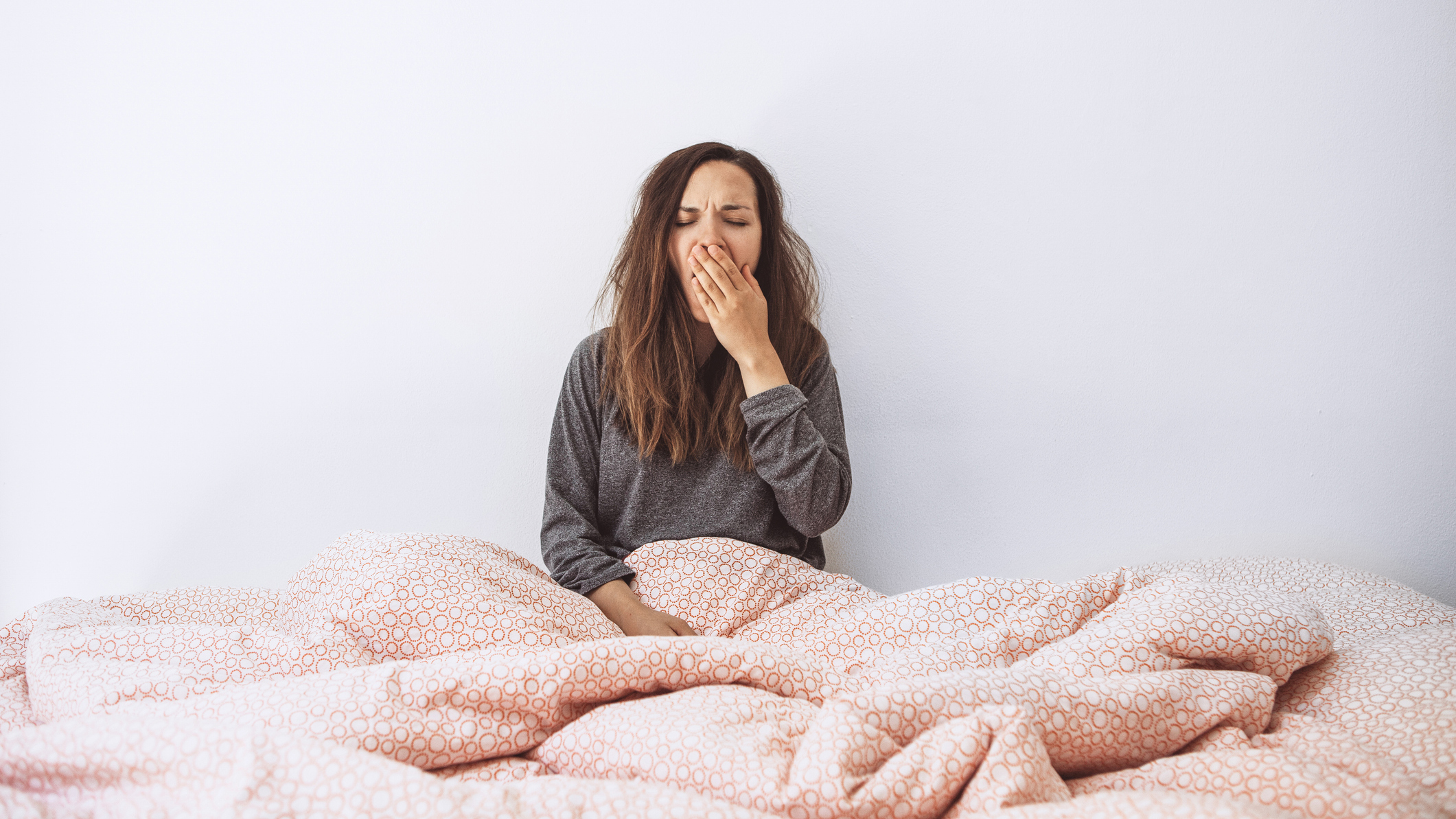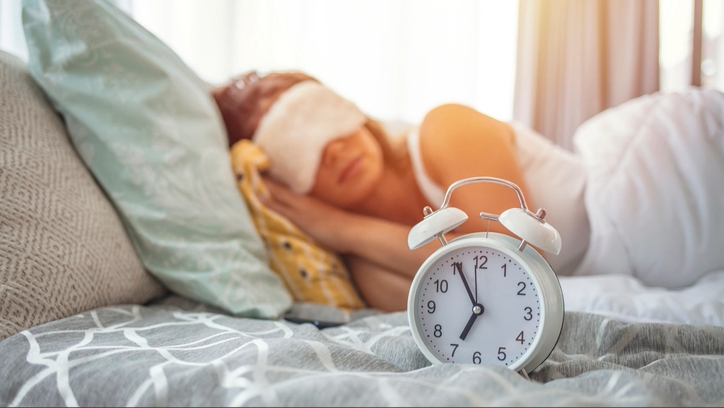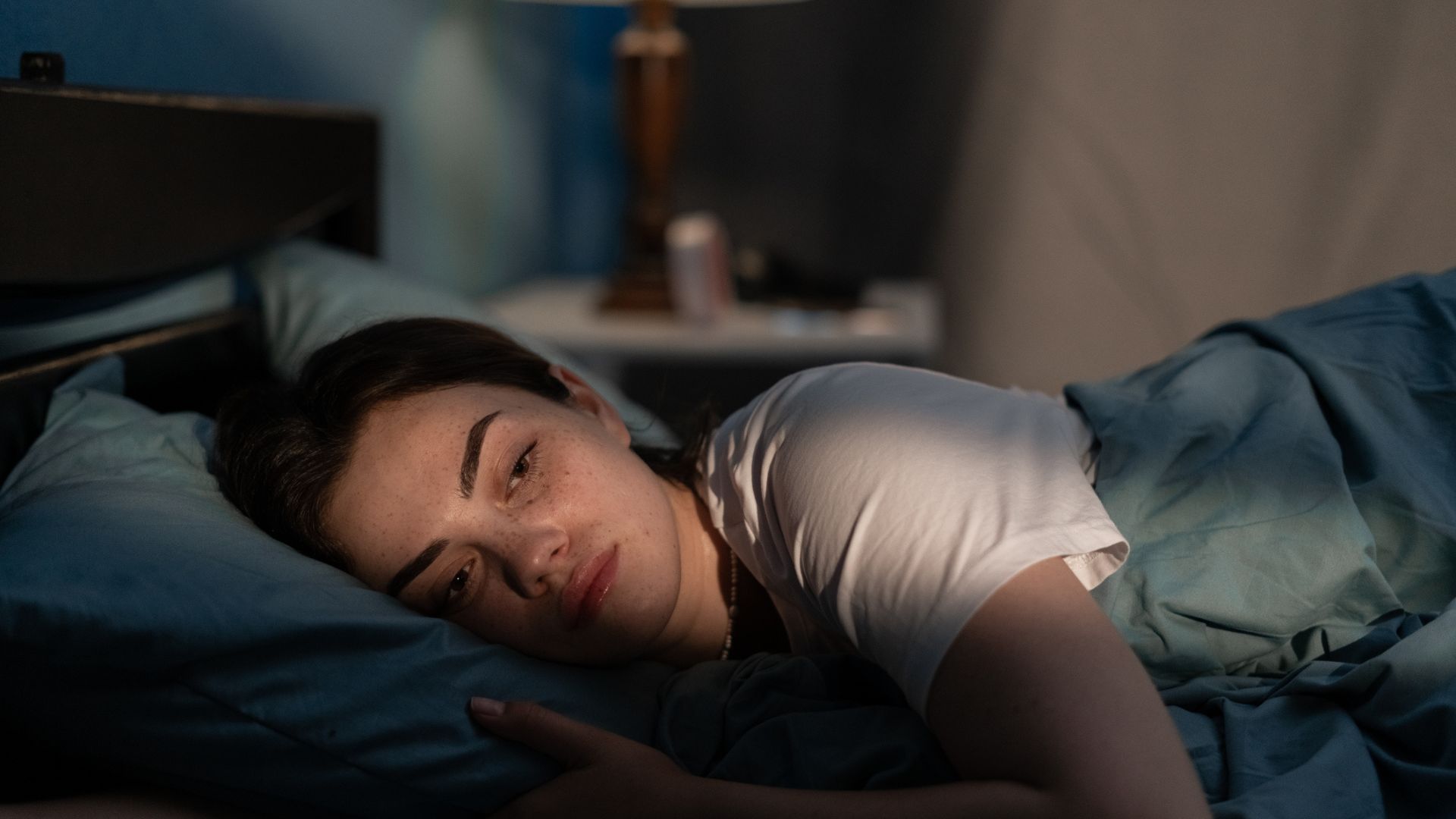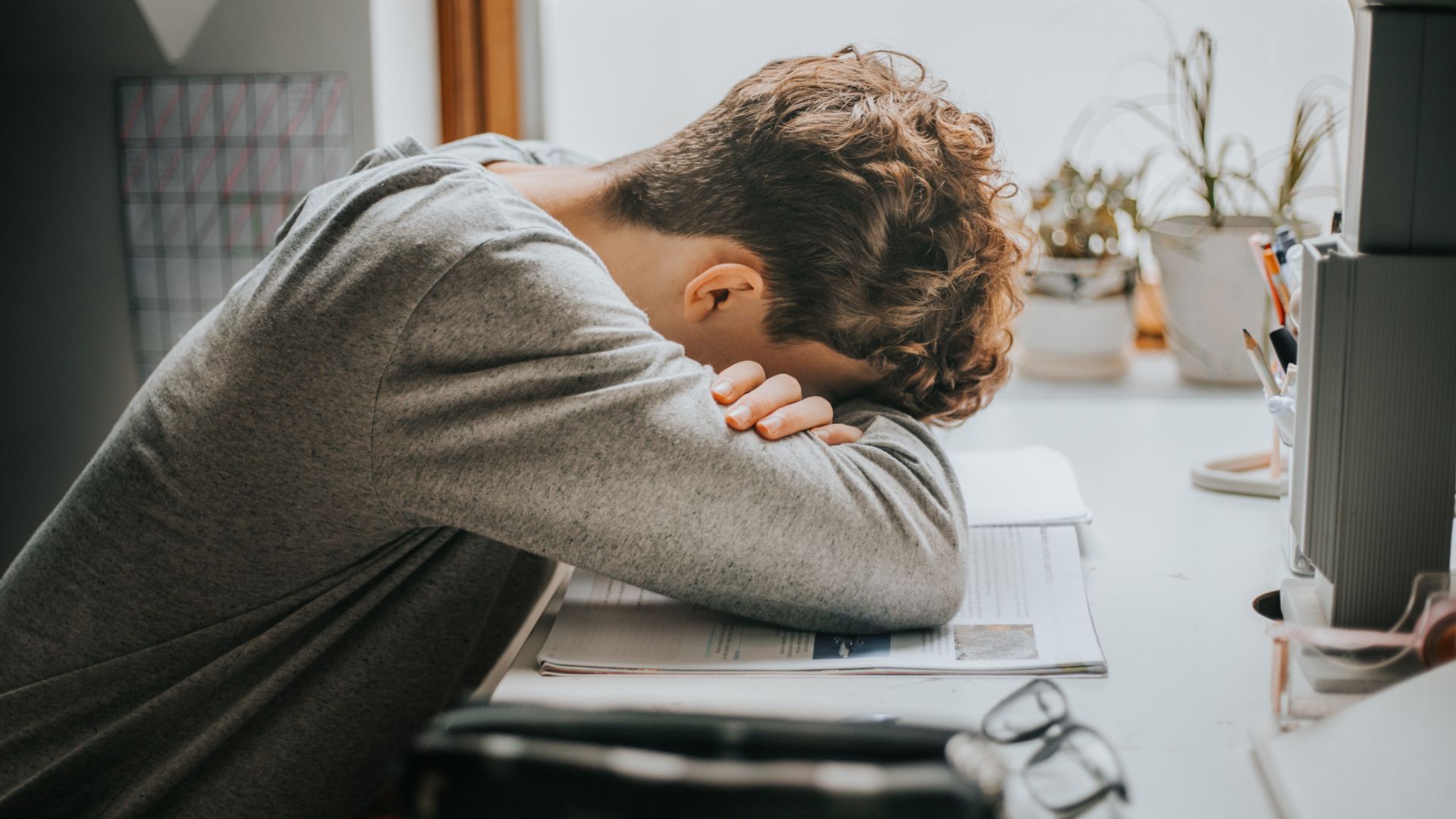Doctor reveals what happens if you sleep too much — and it's almost as bad as not sleeping enough
Oversleeping can affect your mental and physical wellbeing in these exact ways

Here at Tom’s Guide our expert editors are committed to bringing you the best news, reviews and guides to help you stay informed and ahead of the curve!
You are now subscribed
Your newsletter sign-up was successful
Want to add more newsletters?

Daily (Mon-Sun)
Tom's Guide Daily
Sign up to get the latest updates on all of your favorite content! From cutting-edge tech news and the hottest streaming buzz to unbeatable deals on the best products and in-depth reviews, we’ve got you covered.

Weekly on Thursday
Tom's AI Guide
Be AI savvy with your weekly newsletter summing up all the biggest AI news you need to know. Plus, analysis from our AI editor and tips on how to use the latest AI tools!

Weekly on Friday
Tom's iGuide
Unlock the vast world of Apple news straight to your inbox. With coverage on everything from exciting product launches to essential software updates, this is your go-to source for the latest updates on all the best Apple content.

Weekly on Monday
Tom's Streaming Guide
Our weekly newsletter is expertly crafted to immerse you in the world of streaming. Stay updated on the latest releases and our top recommendations across your favorite streaming platforms.
Join the club
Get full access to premium articles, exclusive features and a growing list of member rewards.
Have you ever woken up feeling groggy, only to realise you’ve slept for over nine hours? For some people getting too much sleep is a rare dream, for others it’s a habit they’re trying to curb. But should you stop? And how much sleep is too much?
While we’re used to being told that the average adult needs seven to nine hours of sleep per night, the amount an individual actually needs depends on a lot of different factors. These include their gender, lifestyle, and age. We know that not sleeping enough can have serious consequences, but what about sleeping too much? Well, it turns out it might be just as bad.
We asked Dr. Leah Kaylor, a clinical psychologist who specializes in sleep and completed her residency in a sleep clinic helping veterans with sleep hygiene, nightmares and insomnia, to tell us what to expect from continually oversleeping, (and it turns out that can be brain fog, grogginess and even serious health conditions), and how to stop. So, if hitting snooze is you're struggle, listen up.
How much sleep is too much?
While Dr Kaylor says the average adult thrives on 7–9 hours of sleep per night, every individual is different, and she explains that “our need for sleep changes as we grow, influenced by the physical and mental demands of each stage of life.”
Some people might feel like they need more than 9 hours sometimes, and others can thrive on just 5 hours. However, in general oversleeping, also known as long sleeping, refers to “sleeping more than nine hours in a 24-hour period.” This can include sleeping for fewer than 9 hours during the night and napping during the day.
“Achieving optimal sleep is about more than just avoiding too much or too little rest — it's about balance. If an additional hour of rest helps you feel alert and ready to perform at your best, then that may be the right amount of sleep for your body," Dr Kaylor says, adding, "However, if you consistently sleep longer and still feel fatigued or find yourself nodding off during downtime, it could signal an underlying health issue that warrants further attention.”

What happens if you sleep too much?
Sleeping too much regularly can have serious consequences, much like how sleep deprivation can affect your physical and mental health. Dr. Kaylor warns us about the following risks of oversleeping.
Get instant access to breaking news, the hottest reviews, great deals and helpful tips.
Fatigue and lethargy
It may come as a surprise, but sleeping too much can actually make you feel more tired. “While sleep itself might seem like a temporary relief, it's important to note that oversleeping often worsens the overall sense of fatigue and can contribute to feelings of sluggishness or even a persistent lack of energy,” the doctor explains.
This can result in drowsiness, grogginess, brain fog and difficulty paying attention to activities, which can have an overall impact on your quality of life, making it difficult to commit to social, career and personal tasks.
“Fatigue from oversleeping can mirror the effects of sleep deprivation. This creates a paradox: despite getting more sleep, you may still feel lethargic and less alert, increasing the risk of errors and accidents. Instead of feeling refreshed, you may wake up feeling just as tired as when they went to bed,” Dr Kaylor notes.

Your body’s internal clock goes out of rhythm
Our circadian rhythm is what people often call our ‘body clock,’ and it refers to the times we naturally feel energized and sleepy.
A key factor in getting quality sleep and regulating your energy levels is sticking to a consistent sleep schedule and routine. Sleeping over 9 hours can make sticking to a routine difficult.
“Ironically, too much sleep can also mess with your body’s natural rhythms, leading to trouble falling or staying asleep at night,” Dr. Kaylor says. This means sleeping too much can actually lead to sleep deprivation because you may frequently wake in the night, reducing the quality of the sleep you get.
Mental health issues can arise
Sleep and mental health go hand in hand. Poor mental health leads to poor sleep, and vice versa. Dr. Kaylor says that “studies have found that people with depression are more likely to experience hypersomnia, and the longer someone sleeps, the more they may feel disconnected from their surroundings and their own emotions. This can exacerbate feelings of isolation or loneliness, creating a cycle that makes it harder to break free from depression.”
As well as this, she explains that oversleeping is linked to impaired focus, slower reaction times, and poorer decision-making. This can result in situations that can reduce quality of life, and exacerbate existing, or cause new, mental health issues.
Physical health can decline
As well as affecting your mental health, there is some evidence to suggest physical health conditions can arise as a result of sleeping too much. “Chronic oversleeping is associated with serious health issues such as cardiovascular disease, diabetes, obesity, and even early mortality,” Dr Kaylor says.
You can also expect physical symptoms, like headaches, to creep in, she explains. As well as this, more hours sleeping means less hours being active, which is why BMI is expected to be higher.

Why do people oversleep?
There are many reasons why people oversleep. One of the main ones is that the quality of sleep you’re getting is not enough to feel well rested, meaning you get that feeling you need to sleep more. Underlying health conditions and sleep disorders like obstructive sleep apnea, restless leg syndrome, parasomnia and hypersomnia can cause oversleeping, due to a reduction in overall quality of sleep.
Another serious cause of oversleeping is poor mental health. “While it's often seen as a less obvious problem compared to insomnia, excessive sleep can be a hidden sign of depression,” Dr Kaylor says.
“When someone is depressed, their energy levels can be significantly impacted. They may feel a profound sense of fatigue, which can make the thought of getting out of bed seem overwhelming. As a result, they may sleep for longer periods than usual, using sleep as an escape from feelings of sadness, hopelessness, or emotional pain,” she explains.
How to stop sleeping too much
If you’re struggling with oversleeping, there are some ways you can try to get your sleep back under control. Here’s what Dr. Kaylor advises.
Keep a consistent schedule
We mentioned the importance of following a sleep schedule earlier, and Dr. Kaylor agrees, saying “my top recommendation is consistency! Consistency, consistency, consistency! With the time in which you go to bed and the time in which you wake up — even on weekends, even on holidays! (bummer, I know). By being consistent, it reinforces your circadian rhythm.”
Try creating a nighttime routine to help you wind down in the evenings, so it's easier to fall asleep at night.
Try therapy

If you think you may be oversleeping because of a mental health problem, like anxiety or depression, getting support for this can help.
“People can consider using mental health services such as therapy, coping skills, or support groups to address emotional challenges that may be contributing to oversleeping,” Dr Kaylor explains.
“By identifying and addressing the underlying causes of over sleeping in addition to improving sleep habits, people can enhance their overall well-being and break the cycle of excessive sleep.”
Take part in a sleep study
If you feel your oversleeping may be caused by an underlying health condition or sleep disorder, you should consider taking part in a sleep study. This is when your sleep is observed, along with your brain activity, muscle movement and heart rate.
The results will be able to show you if there is anything impacting the quality of your sleep and causing you to sleep too much. A health professional will be able to talk you through the results and offer different treatment plans for your next steps.

Lauren is an experienced writer and editor in the health and lifestyle industry and has led many campaigns and projects that deliver news, advice, and research on all things sleep. As the Sleep Features Editor for Tom’s Guide, Lauren writes, commissions and edits sleep and mattress content, from in-depth how-tos in sleep and mattress health to interviews with doctors and neuroscientists on the latest news in sleep. Lauren regularly tests new sleep tech and accessories to evaluate their effectiveness for getting good quality sleep and easing specific sleep struggles like nighttime anxiety. Alongside this, Lauren reports on the best mattress brands out there, like Helix, Saatva, and DreamCloud, helping readers find the right mattress for them and the best deals on them.
 Club Benefits
Club Benefits










